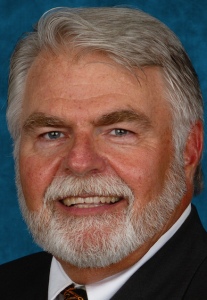Meals tax fails to pass
Published 2:41 pm Sunday, November 17, 2019
|
Getting your Trinity Audio player ready...
|
Voters said “no” at the election polls on Nov. 5 when it came to a countywide meal tax that would have been used to support government services to include schools and capital projects.
If the meals tax was adopted, and the maximum tax rate of 4% would have been imposed, bringing the total tax set on all prepared food and beverage in the county to 9.3%.
Charlotte County Board of Supervisors Chairman, Garland H. “Butch” Hamlett Jr. said the tax might have offered some relief on personal/real estate taxes or monies for the schools.
“Keysville and Charlotte Court House already have a food tax, and what the county was voting on had no effect on the towns,” explained Hamlett. “Those who voted against the food tax pay this to Prince Edward, Halifax and most other localities.”
According to the petition filed at the Charlotte County Circuit Court, the meals tax would not only apply to restaurants but to any convenience store that prepares food to be sold.
The resolution to seek the court order to place the meals tax referendum on the ballot carried with all supervisors voting yes. The motion was made by Wylliesburg/Red Oak Supervisor Kay Pierantoni.
Following the failed referendum, Pierantoni said she was disappointed that the meals tax did not pass.
“It would have been a way to help generate some much-needed revenue from people passing through,” she said. “This is especially true at Tastee Freeze on (U.S. Route) 360. I certainly realize citizens would also pay a bit more for a burger. However, the reality is … one way or the other … we will need to collect that revenue or cut back. Citizens don’t want services cut to save money … prime example is the recent uproar over closing convenience centers two days a week. So, I believe the meals tax would have been a good source of needed revenue.”
County Seat Representative, Gary Walker, noted slowing down and or halting on the spending of millions of dollars the county does not have needs to be done in order not to raise taxes. “The board gave the citizens an opportunity to give the county an alternative to taxing real estate and personal property,” he said. “In their wisdom, the citizens have decided that they do not want this alternative, and we, as a board, must abide by their wishes.”




